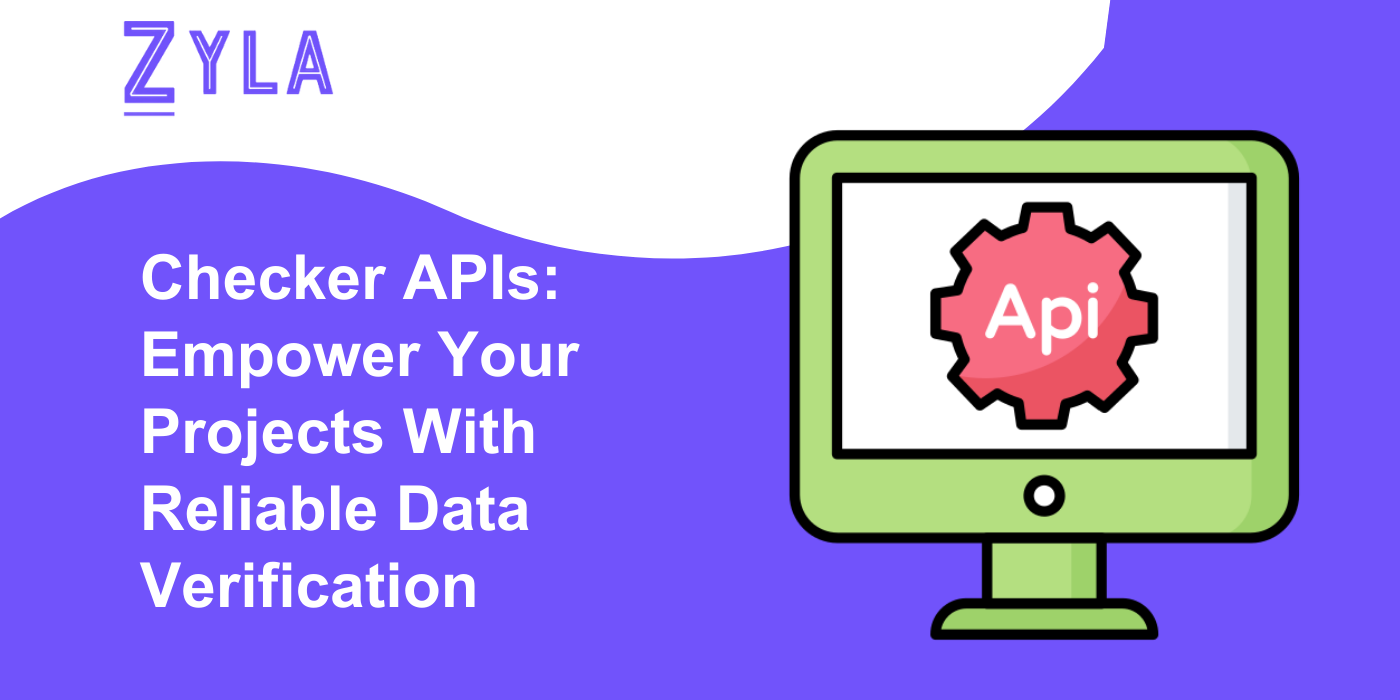Checker APIs: Empower Your Projects With Reliable Data Verification

In the realm of digital projects and applications, the importance of reliable data verification cannot be overstated. Checker APIs offer a powerful solution for ensuring the accuracy and integrity of data inputs, empowering developers, businesses, and organizations to enhance the reliability of their projects. Let's delve into the world of Checker APIs and explore how they can elevate your projects with robust data verification capabilities.
Understanding the Role of Checker APIs
1. Data Validation API
The Data Validation API is a fundamental tool that enables users to validate various types of data inputs, such as email addresses, phone numbers, and credit card numbers. By leveraging this API, developers can ensure that the data entered into their applications meets specific criteria and is free from errors or inconsistencies, enhancing the overall quality and reliability of their projects.
2. Identity Verification API
The Identity Verification API provides a secure and efficient method for verifying the authenticity of user identities, such as verifying government-issued IDs, passports, or driver's licenses. This API is invaluable for businesses in industries like finance, healthcare, and e-commerce, where identity verification is a critical component of compliance and security measures.
3. Document Verification API
For projects that require document verification, the Document Verification API offers a seamless solution for authenticating various types of documents, including contracts, certificates, and licenses. This API streamlines the verification process, reduces manual errors, and enhances the trustworthiness of projects that rely on accurate document authentication.
Benefits of Using Checker APIs for Data Verification
Enhanced Data Integrity
One of the primary benefits of incorporating Checker APIs into your projects is the enhancement of data integrity. By validating and verifying data inputs through these APIs, users can ensure that the information processed by their applications is accurate, consistent, and reliable, minimizing the risk of errors and data corruption.
Improved Security Measures
Checker APIs play a crucial role in bolstering the security measures of projects by offering robust data verification capabilities. By verifying user identities, validating sensitive information, and authenticating documents, these APIs help mitigate the risks associated with data breaches, identity theft, and fraudulent activities, ensuring the protection of user data and maintaining the trust of stakeholders.
Considerations for Integrating Checker APIs
Scalability and Performance
When selecting Checker APIs for data verification, users should consider the scalability and performance of the APIs to ensure they can accommodate the growing needs of their projects. Opting for APIs that offer scalability features, reliable uptime, and efficient data processing capabilities enables users to scale their projects seamlessly and maintain high performance levels.
Compliance and Regulations
Another critical consideration when integrating Checker APIs is ensuring compliance with data privacy regulations and industry standards. Users must verify that the APIs adhere to relevant data protection laws, implement encryption protocols to secure sensitive data, and provide transparency regarding data handling practices to uphold compliance requirements and protect user privacy.
Conclusion
Checker APIs serve as indispensable tools for empowering projects with reliable data verification capabilities, enabling users to validate data inputs, verify user identities, and authenticate documents with precision and efficiency. By leveraging these APIs, developers, businesses, and organizations can enhance the integrity of their projects, strengthen security measures, and comply with data privacy regulations effectively. As the demand for accurate and trustworthy data verification solutions continues to rise in the digital landscape, Checker APIs play a vital role in equipping projects with the tools they need to ensure data integrity, security, and compliance, ultimately contributing to the success and credibility of diverse digital initiatives.






